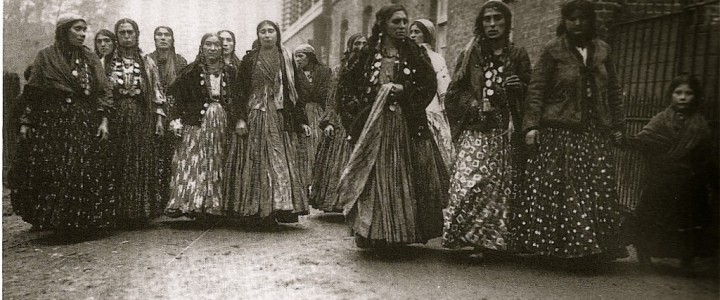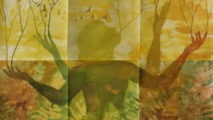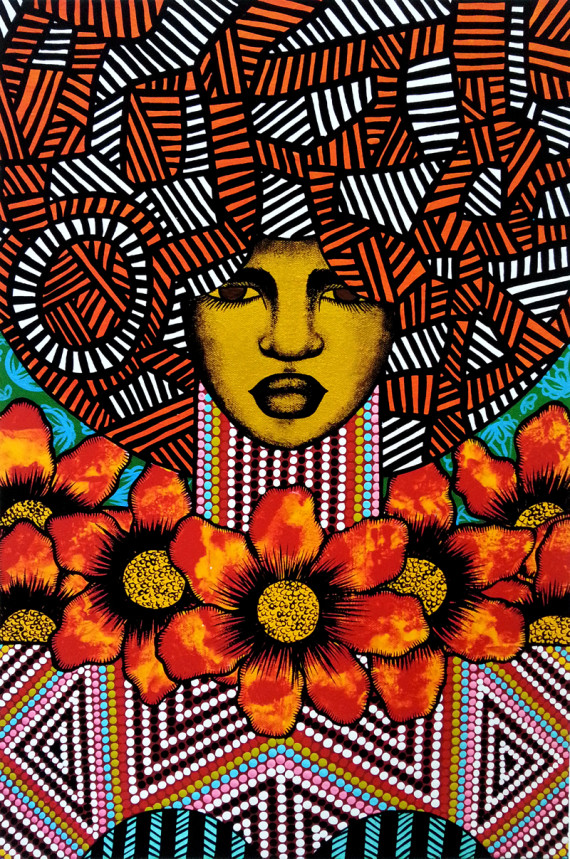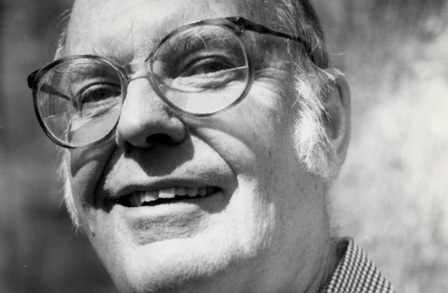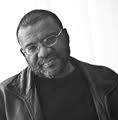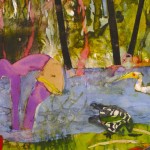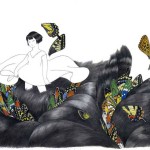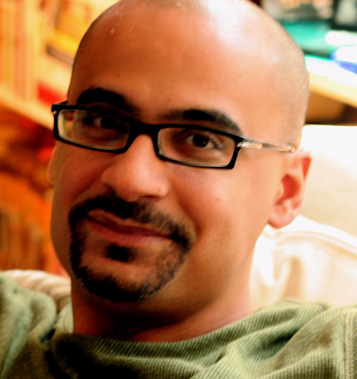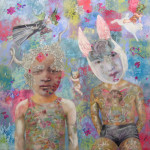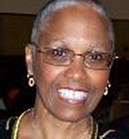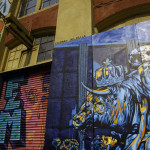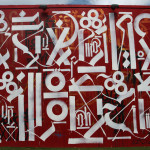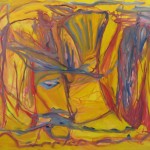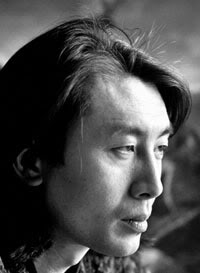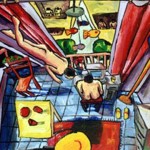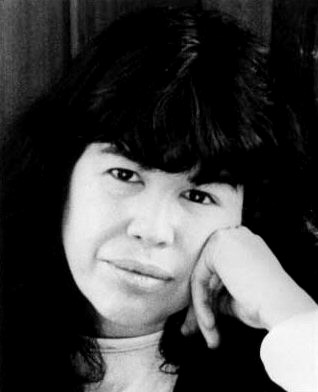GYPSIES
Crowded among the sailors on Columbus’
third voyage were farmers and crossbowmen,
a miner and a priest, and several convicted
murderers, including two gypsy women.
That one, Catalina, slouching
by the kettle, was a farmer
near Cadiz. His hands are huge
and rough, my friend, so rough.
Maria, he says yesterday,
sometimes when I sleep
I see Asia sailing towards me,
a beast-ridden place where
the high-pitched sky sings
nonsense songs and rain comes
down like Pentecostal flames.
And what was I to do –
stir through his talk
like the stools of the sick,
tell him to drink water,
sleep only on his stomach,
refrain from fatback and beans?
I gave him what comes easy,
that moment outside time.
Ah, but if we two had been born
islands, how many times would
these men already have arrived?
Sometimes their mothers,
more often their whores.
What they want are guarantees.
Like little boys they bring us
the things they find at night.
We examine them like pocket frogs,
tell them left is right is right.
What good would it do farmer-boy
to know how soon he’ll die?
Hush, look at the priest,
how he glares at us with loathing,
gypsy women, women who have
murdered, women who have lived.
But the men do not go near him
and we see the strain
beneath his cassock folds.
So jealous, so impatient,
what a fool the padre is.
Soon enough it will be his turn.
When the soldier, the farmer,
the miner and… yes… us…
have sweated out our dreams
there will be much need
to look back then,
much to be confessed.
But here, now, waiting for wind,
locked in this journey
like a yawn that doesn’t end,
there is just what lies ahead.
And the future, as these men know,
that world, Catalina, is ours.
RUTH’S WHITE GLOVE
for Toni Morrison
The man with heavy
hands fumbles with
pearl buttons, a long
row of small buttons
shining like moons
in a universe of mites.
Down the satin white
he works, awkwardly,
painstakingly, as if
he were a wave grasping
single grains of sand.
One by one he undoes
them, him all thumbs
and praying it be proper,
this slow solemn rushing
solemn so slow rushing
when the last at last
releases from its loop
the glove sloughs off
and he strokes her
naked flesh, believing
the whole while it is he
who has been touched.
 Paul Genega is the author of five collections of poetry, most recently All I Can Recall (Salmon Poetry, Ireland, 2013). Over a forty year career, his work has appeared in journals such as Poetry, North American Review, New York Quarterly and Free Inquiry, and has garnered numerous awards, including the “Discovery”/The Nation Award and an individual fellowship from the National Endowment for the Arts. He founded and directed the creative writing program at Bloomfield College, New Jersey, where his legacy continues through the Genega Endowed Scholarships. His theater collaboration with Emmy winning composer and writer Patricia Lee Stotter will have a first reading at NYU this fall.
Paul Genega is the author of five collections of poetry, most recently All I Can Recall (Salmon Poetry, Ireland, 2013). Over a forty year career, his work has appeared in journals such as Poetry, North American Review, New York Quarterly and Free Inquiry, and has garnered numerous awards, including the “Discovery”/The Nation Award and an individual fellowship from the National Endowment for the Arts. He founded and directed the creative writing program at Bloomfield College, New Jersey, where his legacy continues through the Genega Endowed Scholarships. His theater collaboration with Emmy winning composer and writer Patricia Lee Stotter will have a first reading at NYU this fall.
Related Posts
« The Clothes I Wore in High School — Maria Mazziotti Gillan THE PHOTOGRAPHER, FADING — Desiree Bailey »
